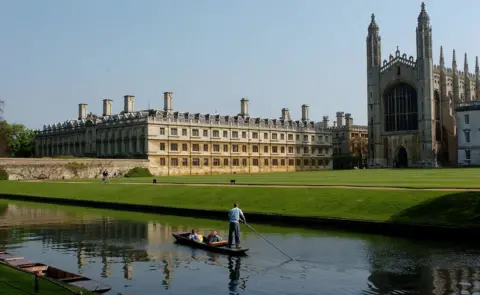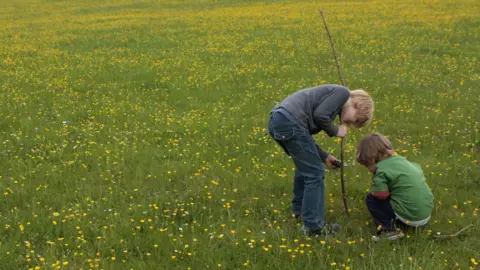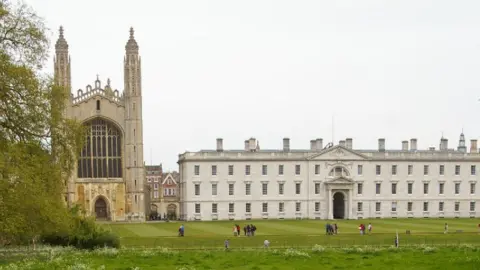Cambridge University's King's College Chapel lawn to become meadow
 PA Media
PA MediaA famous University of Cambridge view is set for a change as a pristine lawn maintained for centuries is transformed into a wildflower meadow.
King's College Chapel and its sloping lawn down to the River Cam have become one of the city's best-known images.
It is popular with tourists, featuring in thousands of Instagram posts, and is widely used to promote the city.
Head gardener Steve Coghill said it was hoped the meadow would bloom in May and create a "biodiversity-rich ecosystem".
The lush green has been maintained since the 1720s but now signs warning people to "keep off the grass" are being removed.
 Instagram/@camdiary
Instagram/@camdiary
Mr Coghill said the different wildflowers would encourage a variety of insect wildlife.
Visitors between May and July should be able to see flowers including harebells, buttercups, poppies and cornflowers.
Temporary paths will be established to let them explore the new eco-system.
"Wildflower meadow creation in this country has been around since the 1980s, so it's about time we got involved," said Mr Coghill.
"Grass lawns are essentially monocultures so it will be incredibly rewarding to instead create a biodiversity-rich ecosystem to cherish and enjoy."
 Christopher Hilton/Geograph
Christopher Hilton/GeographThe project has been given the support of the gardens committee and the Fellows of King's College.
Caroline Fitton, spokeswoman for the Wildlife Trust in Cambridgeshire, said: "More establishments are realising it's pointless having a green space monoculture which no-one is allowed or encouraged to use.
"Anyone walking through will be delighted to see buzzing bees, butterflies and other pollinators all enjoying a new habitat.
"It's currently very species-poor grass, with few invertebrates of interest, so using native, sustainable meadow plants is a superb replacement."
Mr Coghill and his team are working with external consultants to make the meadow a reality.
Once the wildflowers have finished flowering, they will be harvested for hay in September and the lawn mown once again.
